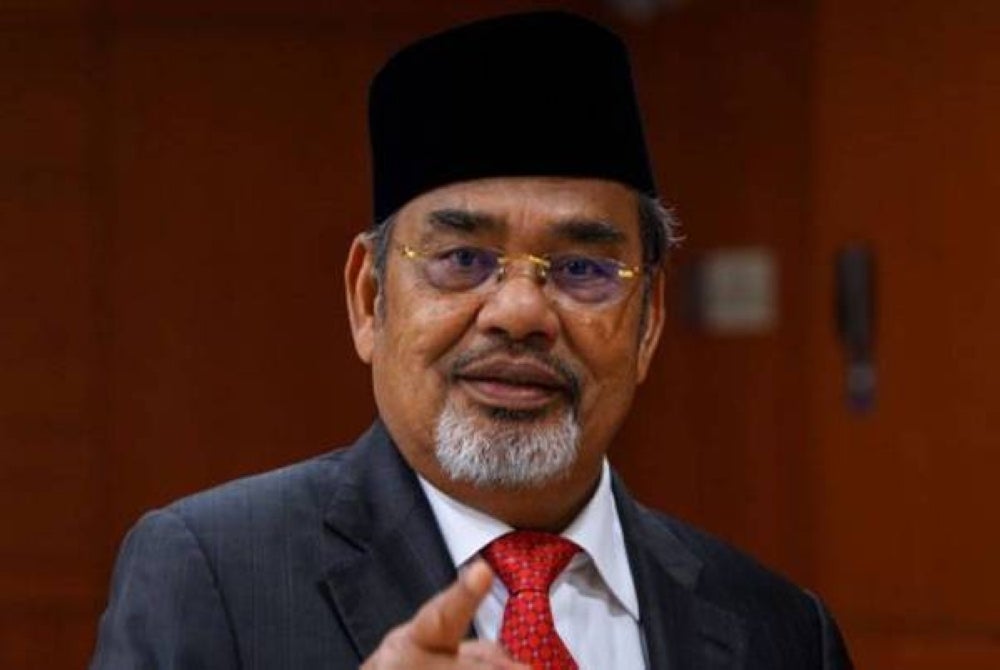Stop the culture of political appointments

Tajuddin Abdul Rahman’s appointment as ambassador to Indonesia has caused quite the uproar.
Most Malaysians seem to have taken it as some sort of slap to the face.
I agree with the majority that Tajuddin is one of the worst people that could have possibly been picked for the job.
I don’t think I will rehash the thousand and one reasons why - no point flogging dead horses, after all. Those who would like a recap, can always turn to Wikipedia: https://en.wikipedia.org/wiki/Tajuddin_Abdul_Rahman#Controversies_and_issues
The incident that is freshest in most people’s minds is of course how Tajuddin was callously making jokes in the aftermath of a massive LRT disaster last year, in which 210 people were injured.

He made those jokes while speaking at a press conference in his capacity as chairman of Prasarana.
In addition to asking why on earth we would pick Tajuddin to be an ambassador, perhaps we should also ask why on earth we would have picked him to be chairman of Prasarana as well.
Indeed, this incident is a good occasion for us to pause and think about how we pick who for what jobs in this country.
Long story short: we have way, way too many political appointments.
Far too often, people are appointed to positions as some sort of reward within systems of political patronage.
This was particularly rife not so long ago, during a previous administration, where directorships and chairmanships were being given out like sweets to members of parliament.
The common perception then was that these positions (which usually came with hefty allowances or salaries) were being distributed in order to ensure the loyalty of said parliamentarians to the prime minister of the day.
This was especially common when the prime minister’s majority in the Dewan Rakyat was razor thin, and appearing to be on the brink of collapse at any point.
If we take things one step further, even cabinet appointments can be seen to be a form of political patronage.
For decades now, key cabinet positions were always reserved for the top leaders of various political parties.
The key determinant for an appointment is arguably which party one is from, and what rank one holds in that party.
This can also be said to be a key feature in the toxic cycle of money politics that is so dominant in Malaysia.
Politicians raise millions of ringgit to ensure they win internal party elections, which in turn then ‘ensures’ they get appointed to a key ministry; then, they use their ministership to give out contracts and raise money, so that they can again contest and win their internal party elections.
We really need to stop and think about what effect this has on how policy is shaped in Malaysia.
Ministers are supposed to be key leaders, making vital decisions in vital areas such as education and health.
As the highest ranking leader in a given field, a minister should ideally be an expert and leader in said field - someone who has a deep understanding of the issues at hand.
A career politician is usually the exact opposite of this.
Politicians like Tajuddin have spent their entire careers politicking, honing a set of skills that really has little to no application in the positions of leadership to which he was appointed.
‘Succeeding’ in Malaysian politics today often involves mastering a very shady set of skills, usually involving ‘money management’ and various forms of patronage.
The ability of some less scrupulous individuals to master these skills accounts for why some of the most abhorrent politicians we can think of still somehow manage to rise to the top of the pile.
As long as we appoint people to significant positions of leadership - be it of GLCs, embassies, or ministries - based on political rank and relevance instead of merit and skill, Malaysia will continue being led down the wrong direction.
A long standing thesis of mine is that the political system in Malaysia has long been broken.
As we think about what we can replace this brokenness with, it may be worth thinking about how we can design a better division of labour, when it comes to leadership.
It’s important to note how different things like running for and being a member of parliament, being a grassroots leader that adds value to society, and being a policy expert, all generally require three very different skill sets.
In a restaurant, the people who cook, who run the business, and who manage the customers all require very different skill sets. It would make very little sense to expect a single person to be able to excel in all three roles at the same time.
What we want instead is one chef who is truly the best at cooking, one business manager who is the best at managing finances and business planning, and one restaurant manager who is the best at making customers feel welcome and comfortable.
Similarly, ambassadors should be diplomats, GLC leaders should be experienced in the businesses they are managing, and ministers should be experts in their ministry.
The cliche goes: team work makes the dream work.
It’s frustrating to see how a country filled with such talented individuals - individuals who have all the abilities needed to make Malaysia truly fulfil its potential - is still being so badly mismanaged.
Correcting this sad state of affairs begins by choosing the right people for the right job.
NATHANIEL TAN works with Projek #BangsaMalaysia. Twitter: @NatAsasi, Email: [email protected]. #BangsaMalaysia #NextGenDemocracy.











